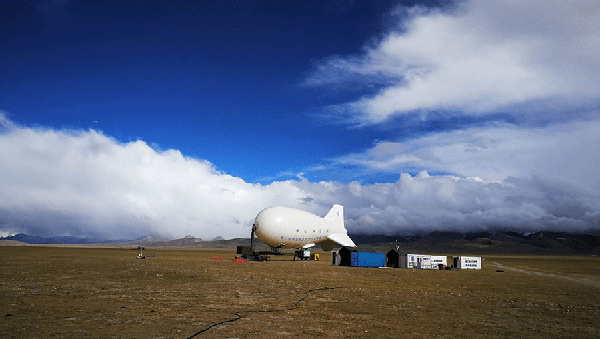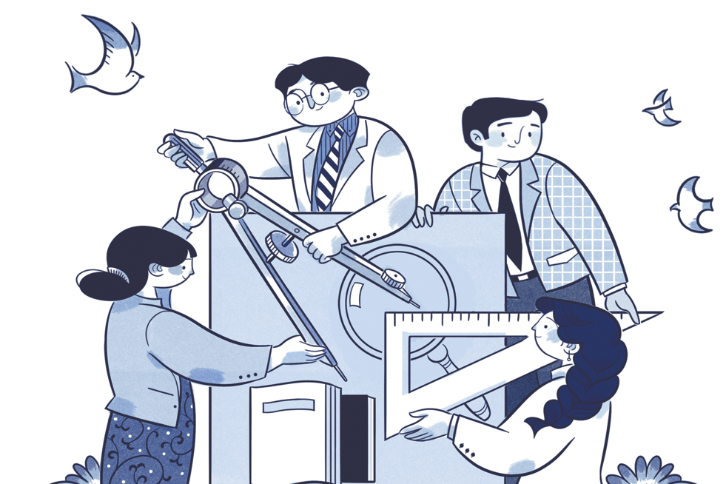Sustaining Mother Earth for future generations


In the context of the Fourth Industrial Revolution, we often hear terms such as big data and the internet of things, which may sound highly technical and virtually digital to some. While Thailand is fully aware of the opportunities and challenges that come with modernity, it also seeks an all-encompassing human dimension of inclusive development, particularly during its term as chair of the Association of Southeast Asian Nations. That is why it has come up with the theme "Advancing Partnership for Sustainability" to promote the "sustainability of things", which means sustainability in all dimensions.
Sustainable development is an overarching concept directly related to the "sustainability of things". However, the first aspect of sustainability that usually comes to mind is environmental sustainability, which is a significant part of the United Nations 2030 Agenda for Sustainable Development. The 17 Sustainable Development Goals are simply grouped into five "Ps"-save the planet, foster peace, create prosperity, enhance partnership, and nourish our people.
'Circular economy' concept gaining ground
Fresh air and clean water are among the basic essentials for human beings and all other creatures that share this world with us. Sadly, Mother Earth has been taken for granted and harmed by humans. That several SDGs give importance to the rehabilitation and conservation of our planet reflects the rising environmental concerns and the call for a more balanced development, widely known as the "circular economy" concept.
Thailand recognizes that enhancing environmental sustainability is inextricably linked to social and economic development, and is one of the key conditions for sustainable development. It has therefore adopted measures to restore, conserve and manage our natural resources and environment in a more sustainable manner, and included these elements in its 20-Year National Strategy Framework (2017-36).
For instance, Thailand has launched the "Nationally Determined Contribution Roadmap on Mitigation (2021-30)" to ensure that it meets its targets to reduce greenhouse gas emissions by 20-25 percent by 2030. In fact, last year it reduced the emission of 45.72 million tons of carbon dioxide, or 12 percent of the targeted 7-20 percent by 2020. Also, it has rehabilitated about 24 hectares of coral reefs and 880 hectares of mangrove forests, and reduced the use of more than 435 million plastic bags since 2017.
Exchanging ideas on how to fight climate change
Moreover, Thailand has consistently advocated cooperation on environmental issues with the global community to derive long-term mutual benefits. For example, it is committed to fighting climate change, according to the 2015 Paris Agreement. It has also been cooperating with all its partners to exchange knowledge, experiences and best practices in order to more seriously combat climate change.
Sustainable development is a global agenda that requires concerted global efforts, and Thailand, as the ASEAN chair this year, is in a position to drive it forward. Since Thailand is also ASEAN Coordinator on Sustainable Development Cooperation, it has been identifying the complementarities and promoting closer coordination between ASEAN and the United Nations.
One substantial outcome of this is the "Complementarities between the ASEAN Community Vision 2025 and the UN 2030 Agenda for Sustainable Development: A Framework for Action", which identifies possible synergy and means to strengthen ASEAN community building while simultaneously realizing several of the SDGs.
A recommendation of the complementarities report, which is likely to be fully realized this year, is the establishment of the ASEAN Centre for Sustainable Development Studies and Dialogue in Thailand. The center will be funded by the Thai government and will help coordinate activities and projects related to the complementarities' initiative, while linking up with similar centers in ASEAN member states to form a network of centers in order to strengthen the regional sustainable development efforts.
Marine debris a major environmental problem
Another sustainable development issue that will be addressed during Thailand's chairmanship of ASEAN is the marine environment. The marine debris problem and its impact on the environment are of great concerns to Thailand. And it believes urgent action needs to be taken to address the problem.
Researchers have found a marine debris or "garbage patch" larger in size than Bangkok in the middle of the Pacific Ocean. This debris is eaten by fish, which is then consumed by humans, thus causing severe health problems. News reports identify only a fraction of the more than 100,000 sea animals such as whales and turtles that die after eating indigestible waste. In addition, marine debris affects the promotion of environmentally friendly tourism, which in turn reduces the contribution of the tourism sector to a country's economic development.
A research by the Thai Ministry of Natural Resources and Environment found that rubbish thrown into the sea can travel all over the world. Therefore, it is necessary to build a platform where countries can discuss the problem and collaborate to tackle it. A technical working group meeting among ASEAN members was held in November 2017, while the Special ASEAN Ministerial Meeting on Marine Debris and Asia-Europe High-level Meeting on Marine Sustainability were held on March 5 and March 7-8 this year. Which shows Thailand is advancing partnerships for sustainability, starting with environmental sustainability, and will extend it to other areas throughout the year.
Philosophy of 'sufficiency economy' adopted
The benefits of sustainable development are countless but each country should embark on its own path to achieve the goals. As for Thailand, it has adopted the "sufficiency economy philosophy" to achieve sustainable development. The "sufficiency economy philosophy" is now part of Thailand's policies both at the national and international levels. It has also been a guiding principle in Thailand's national economic and social development plans since 2002.
Besides, Thailand has shared this philosophy with many countries as an alternative approach to achieving the SDGs by organizing training courses and establishing several cooperation projects in Asia and Africa.
In conclusion, Thailand's commitment to sustainable development is steadfast as demonstrated by its achievements and contributions to national and international development. Thailand is committed to do more. And it looks forward to working with colleagues in ASEAN and beyond in a global partnership as set forth in Sustainability Development Goal 17.
The author is minister of foreign affairs of Thailand.
The views don't necessarily represent those of China Daily.


































